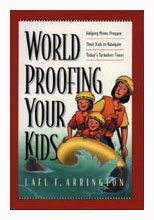The recent World AIDS Day brought accelerated national and state efforts to combat the deadly disease.
The federal Centers for Disease Control launched a major, campaign to make young Americans aware of AIDS risks, and California’s Department of Health Services announced a three-year, $6 million effort to reduce the spread of HIV in the state.
The advertising, marketing and community relations’ strategy is impressive. But is its message completely on target?
The number of AIDS cases diagnosed in the United States, recently passed 500,000. An estimated one of every 92 American males ages 27 to 39 has the HIV virus. The CDC says AIDS is now the leading killer of people ages 25 to 44. California has more than 87,000 documented AIDS cases. Many people don’t realize they’re at risk. The campaigns wisely seek to warn them.
The young adult component of the California campaign, “Protect Yourself- Respect Yourself ” promotes “safer sex” practices. It says that “latex condoms, when properly used, are an effective way to prevent (HIV) infection.” Just how safe are latex condoms?
Theresa Crenshaw, M. D., is past president of the American Association of Sex Educators, Counselors and Therapists. She once asked 500 marriage and family therapists in Chicago, “How many of you recommend condoms for AIDS protection?”
A majority of the hands went up. Then, she asked how many in the room would have sex with an AIDS-infected partner using a condom. Not one hand went up.
These were marriage and family therapists, the “experts” who advise others. Dr. Crenshaw admonished them, “It is irresponsible to give students, clients, patients advice that you would not live by yourself, because they may die by it.”
Condoms have an 85 percent (annual) success rate in protecting against pregnancy. That’s a 15 percent failure rate. But a woman can get pregnant only about six days per month. HIV can infect a person 31 days per month. Latex rubber, from which latex gloves and condoms are made, has tiny, naturally occurring voids or capillaries measuring on the order of one micron in diameter. Pores or holes 5 microns in diameter have been detected in cross sections of latex gloves. (A micron is one-thou-sandth of a millimeter.) Latex condoms will generally block the human sperm, which is much larger than the HIV virus.
But HIV is only 0.1 micron in diameter. A 5-micron hole is 50 times larger than the HIV virus. A 1-micron hole is 10 times larger. The virus can easily fit through. It’s kind of like running a football play with no defense on the field to stop you.
In other words, many of the tiny pores in the latex condom are large enough to pass the HIV virus (which causes AIDS) in its fluid medium. (HIV sometimes at-taches to cells such as white blood cells; other times, it remains in the tiny cell-free state.)
Earlier this year, Johns Hopkins University reported re-search on HIV transmission from infected men to uninfected women in Brazil. The study took pains to exclude women at high risk of contracting HIV from sources other than their own infected sex partners. Of women who said their partners always used condoms during vaginal intercourse, 23 percent became HIV-positive. Risk reduction is not risk elimination.
One U. S. Food and Drug Administration study tested condoms in the laboratory for leakage of HIV-size particles. Almost 33 percent leaked. That’s one in three.
Burlington County, New Jersey, banned condom distribution at its own county AIDS counseling center. Officials feared legal liabilities if people contracted AIDS or died after using the condoms, which the county distrib-uted.
Latex condoms are sensitive to heat, cold, light and pressure. The FDA recommends they be stored in “a cool, dry place out of direct sunlight, perhaps in a drawer or closet.” Yet they are often shipped in metal truck trailers without climate control. In winter, the trailers are like freezers. In summer, they’re like ovens. Some have reached 185 degrees Fahrenheit inside. A worker once fried eggs in a skillet next to the condoms, using the heat that had accumulated inside the trailer.
Is the condom safe? Is it safer? Safer than what?
Look at it this way. If you decide to drive the wrong way down a divided highway, is it safer if you use a seat belt? You wouldn’t call the process “safe.” To call it “safer” completely misses the point. It’s still a very risky–and a very foolish –thing to do.
AIDS expert Dr. Robert Redfield of the Walter Reed Hospital put it like this at an AIDS briefing in Washington, D. C.: If my teenage son realizes it’s foolish to drink a fifth of bourbon before he drives to the party, do I tell him to go ahead and drink a six-pack of beer instead?
According to Redfield, when you’re talking about AIDS, “Condoms aren’t safe, they’re dangerous.”
“Condom sense” is very, very risky. Common sense says, “If you want to be safe, reserve sex for a faithful, monogamous relationship with an uninfected partner.”
At this season of the year, much attention is focused on a teacher from Nazareth, who said, “You shall know the truth, and the truth shall make you free.” Could it be that the sexual practice that he and his followers advocated–sexual relations only in a monogamous marriage–is actually the safest, too? AIDS kills. Why gamble with a deadly disease?
©1995 Rusty Wright. Used by permission. All rights reserved.
This article appeared in the San Bernadino [CA] Sun, Dec. 25, 1995.









